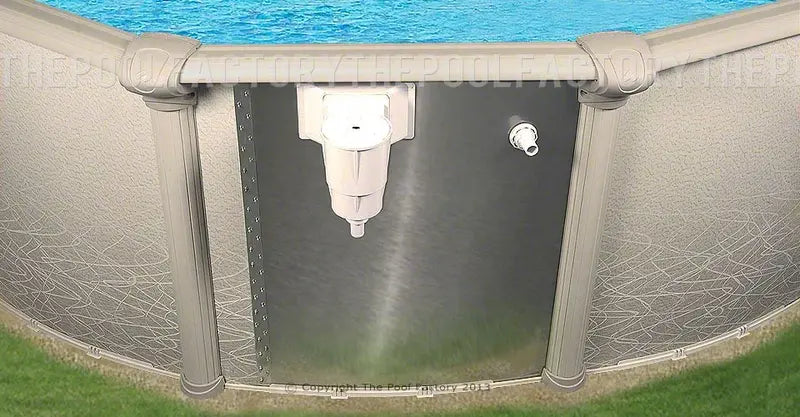Saltwater Pools vs. Chlorinated Pools
A comparison as to the pro's and con's of both saltwater pools and chlorinated swimming pools.

An educated above ground pool owner quickly learns there are many styles of pool supplies available depending on the owners maintenance preference and cleaning process. Saltwater systems, and more specifically saltwater pools, are becoming more and more common in the industry. They provide the ability to have softer, healthier feeling water without needing to add chlorine powder or tablets directly to the pool. Saltwater systems should only be added to saltwater pools. These are some differences that are important to know when making the decision to purchase your next pool.
Chlorinated Pools
I use the term “chlorinated pools” as simply to differentiate from strictly saltwater pools. A chlorinated pool is any pool that does not use an alternative sanitizing system. A chlorine pool requires more maintenance because less is automated by a sanitizing system. You would have to find a way to make sure your pool gets its daily dose of chlorine, generally by adding tablets or granular powder.
Let me explain a little better…
It is possible to have the saltwater pool model that is available at ThePoolFactory.com and decide to use chlorine as opposed to a salt chlorine generator. You would still have the anti-corrosion benefits of the saltwater pools materials, but choosing to manage some more maintenance than a saltwater pool requires.
It is also possible to put a salt chlorine generator on any pool, but if it is not intentionally made and warrantied for use with a saltwater system, chances are you will see corrosion within 2-3 years.
Saltwater Pool Models
Saltwater pools are generally more durable. The corrosive aspects of salt require the pool to be constructed of more durable, longer lasting material that is not susceptible to corrosion. Simply put, a saltwater model pool will have higher quality parts in the places that matter most. Resin (high quality plastic) is used for the tracks, top ledges, and top and bottom joiners to ensure this pool will not rust due to the added salt. Even if you decide not to use a salt chlorine generator, a saltwater pool is a great choice when using regular chlorine.

Saltwater 5000 Stainless Steel Service Panel
A Saltwater Swimming Pool combined with a salt chlorine generator is one of the best ways to make your pool nearly maintenance free. The Solaxx Retro Jet RJ Saltwater System would be a great choice for use with your saltwater swimming pool. This saltwater system easily installs to the outside of your pools’ return fitting and is extremely user friendly.
The water in a saltwater pool with a salt chlorine generator is soft with no taste of salt or resemblance to the ocean. Although since it is about 3500 ppm (parts per million) salt, it is very close to the amount of salt in our eyes and therefore not irritating to the eyes or the skin. Chlorine pools are generally considered less “healthy” as chlorine can often irritate the eyes and skin and also fade clothing and swimsuits.
Saltwater Pools - Frequently Asked Questions
Whether or not to convert your pool over to saltwater is becoming a much more common question for above ground swimming pool owners. In the past, saltwater systems were not very common, and for above ground pools, detrimental because the salt levels would lead to corrosion of the metal parts of the pool. Now salt systems are becoming a lot more popular.
Above ground pool manufactures are designing pools that are able to withstand the corrosive characteristics of salt and still come with a warranty of 30 years or greater.
Saltwater pools are safer, more efficient, require less maintenance, and either comparable in cost or less expensive as compared to a typical chlorine pool.















